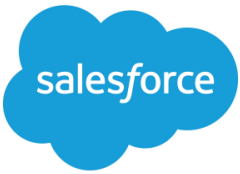Enroll in ONLC's Salesforce training courses and elevate your career by becoming proficient in one of the most sought-after platforms. Our curriculum is designed to provide both foundational knowledge and advanced skills, ensuring that learners are well-equipped to utilize this powerful CRM tool effectively. Whether you are a newcomer aiming to become a Salesforce administrator or a seasoned professional seeking to upgrade your skills, our Salesforce training covers it all.
Salesforce is a cloud-based customer relationship management (CRM) software that helps businesses manage interactions with customers and prospects. It offers a centralized platform for sales, marketing, and customer service departments to collaborate and streamline their processes. With its user-friendly interface and customizable features, Salesforce has become the go-to solution for organizations of all sizes.
ONLC's instructor-led training (ILT) courses offer live, interactive online sessions guided by experienced instructors. . Throughout the class, you will engage in hands-on exercises to reinforce your learning and can interact with the instructor at anytime.
You can attend Salesforce classes at any of ONLC's hundreds of training centers ![]() or join from the comfort of your own location
or join from the comfort of your own location ![]() . Regardless of where you choose to participate, the training remains fully interactive, ensuring an enriching experience.
. Regardless of where you choose to participate, the training remains fully interactive, ensuring an enriching experience.
Experience more with ONLC! Train confidently thanks to our money-back satisfaction guarantee ![]() and take advantage of our optional free refresher course
and take advantage of our optional free refresher course ![]() , allowing you to revisit the class at no extra cost. These value-added benefits are available with any public, instructor-led training course.
, allowing you to revisit the class at no extra cost. These value-added benefits are available with any public, instructor-led training course.
And if you're considering volume training — whether in terms of topics, classes or participants — explore ONLC Learning Credits to optimize your training budget. The more you invest, the more you save. Learn about ONLC Learning Credits ![]() .
.
Our Group Training solutions offer a cost-effective way to upskill your staff on Salesforce while saving time. You can choose between an in-person instructor at your site or an online instructor, making it easy to train participants across multiple locations.
We can customize course content to align with you specific learning objectives, schedules and budgets. To learn more and request a price quote, explore our Group Training Options ![]()
Click the title of the classes marked with the green flag ( ) to see specific locations and dates of Ready to Run classes. Click the title of the classes marked with the yellow flag (
) to see specific locations and dates of Ready to Run classes. Click the title of the classes marked with the yellow flag ( ) to see specific locations and dates of Early Notice classes.
) to see specific locations and dates of Early Notice classes.
| Click Title for Dates & Outlines | Days | Fee |
| Administration | ||
| Salesforce.com: Sales Cloud Administration Essentials | 5 | $2695  |
| For Sales Representatives | ||
| Salesforce.com: Sales Cloud for Sales Representatives | 1 | $395  |
| Salesforce Power User for Sales | 1 | $395 |
| For App Developers | ||
| ADX201: Essentials for New Lightning Experience Administrators | 5 | $4500 |
| DEX403: Declarative Development for Platform App Builders in Lightning | 5 | $4500 |
| DEX450: Build Applications Programmatically on the Salesforce Platform | 5 | $4500 |
Volume Discounts with ONLC Learning Credits
Get maximum buying power and flexibility with ONLC Learning Credits. They're a great way tosecure a substantial volume discount on end-user and technical courses and can be used for live, instructor-led & self-study, On-Demand learning formats. Credits are good for up to a year! See details & pricing ![]() .
.
Train at any of ONLC's Hundreds of ONLC Centers
We schedule every instructor-led (ILT) class at each of our ONLC Training Centers locations. Our training rooms are outfitted with the equipment needed for training and provide an interruption-free space so you can concentrate fully on learning. Find the nearest ONLC center ![]() .
.
Live Classes from Home
You can attend our same live, instructor-led classes from the comfort and convenience of your own home. The setup is really easy and you don't have to have the class software on your device. Follow our easy setup video ![]() . If you're still not sure about the setup after watching the video contact an ONLC Advisor toll free for assistance.
. If you're still not sure about the setup after watching the video contact an ONLC Advisor toll free for assistance.
![]()
To learn more about ONLC's classes or for guidance contact our Education Advisors via chat or by phone at:
1.800.288.8221
(weekdays)
Looking for Salesforce classes near you? All of our Salesforce training is available at our locations listed below. Click the plus sign on the right to expand and show the sites grouped by state.
